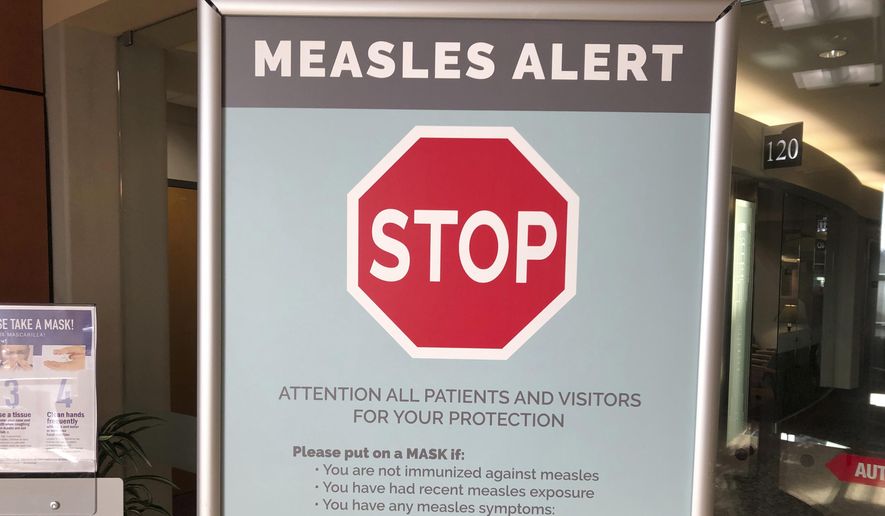If you’ve got the time and the inclination on Tuesday, check in on a congressional hearing on the importance of childhood vaccinations against communicable diseases.
A young man named Ethan Lindenberger, of Norwalk, Ohio, is scheduled to testify before the Senate Committee on Health, Education, Labor and Pensions about how he got himself vaccinated at the age of18 because his mom refused to do so when he was growing up.
Her fear? Vaccinations do might more harm than good.
Well, the good is obvious. For sure, Mr. Lindenberger was blessed to escape what kids and adults in America and elsewhere were unable to evade — exposure to measles, which can be debilitating and deadly.
First, consider data by the U.N.’s World Health Organization, which ranks nations with the highest incidences of measles in 2018:
1. Ukraine: 30,338 cases
2. Philippines: 13,192
3. Brazil: 10,262
4. Yemen: 6,641
5. Venezuela: 4,916
6. Serbia: 4,355
7. Madagascar: 4,307
8. Sudan: 3,496
9. Thailand: 2,758
10. France: 2,269
Second, ponder what’s been happening in the United States — and not merely because the World Wide Web has made our global community a much smaller place.
Since 2000, measles was mostly considered eliminated, largely because of deliberate nationwide childhood immunization programs.
Then came outbreaks in recent years, such as one in Florida in 2015 attributed to travelers, and other outbreaks in several states and major cities last year — including an estimated 360 cases in 28 states.
The Centers for Disease Control and Prevention are rightly concerned about another round of cases.
And you know what? Parents and grandparents across the country should be, too, as spring travel-planning season is upon us, and the thing about measles is that you may not know where you or your children were when the infection occurred or even where it happened. The measles virus can persist on surfaces and hang in the air.
In Ohio, the home state of Mr. Lindenberger, health professionals hope lessons were learned from a 2014 measles outbreak in the Buckeye State, as measles vaccination rates are on the decline.
Health experts fear people have forgotten the lesson because vaccination rates are slipping in many areas, and America succeeded in battling measles in the first place by maintaining high vaccination rates.
“Because measles is unbelievably contagious — it’s one of the most contagious disease known to man — you have to maintain a high vaccination rate,” Dr. Eric Robinette, a pediatric infectious specialist at Akron Children’s Hospital, told the Akron Beacon Journal.
There is no cure for measles. So you see, when it comes to “one of the most contagious diseases known to man,” an ounce of prevention against measles, two doses, is worth a pound of cure.
A nod to Mr. Lindenberger for taking the initiative to get himself immunized and explaining why.
Let’s hope he persuades other young adults to do the same.
There are reasonable objections why thousands of Americans and people in other lands are not vaccinated against measles. Some have comprised immune systems, and some nations simply do not have as stringent compliance as the United States.
The nations on WHO’s list should perk up, however, and there is no greater example to prove how better to get rid of measles problem than America.
And that is precisely why we must continue to make the case for vaccinations.
• Deborah Simmons can be contacted at dsimmons@washingtontimes.com.
• Deborah Simmons can be reached at dsimmons@washingtontimes.com.




Please read our comment policy before commenting.